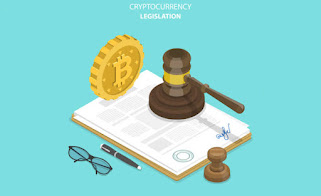Lack of Regulation in Cryptocurrency:
Cryptocurrency is a digital currency that uses encryption techniques to regulate the generation of units of currency and verify the transfer of funds. Unlike traditional currencies, cryptocurrency is not backed by any government or central authority, which has led to concerns about its regulation. The lack of regulation in the cryptocurrency market has been a significant issue for investors and governments alike, leading to increased risks for investors and challenges for regulators. This article will explore the lack of regulation in cryptocurrency in more detail, examining the reasons for it and its potential consequences.
Reasons for the Lack of Regulation in Cryptocurrency:
One of the primary reasons for the lack of regulation in cryptocurrency is the decentralized nature of the technology. Cryptocurrencies are not controlled by a central authority, which makes them difficult to regulate. Governments around the world have struggled to keep up with the rapidly evolving technology, leading to a lack of comprehensive regulation.
Additionally, the lack of international cooperation on the issue has made it challenging to establish a unified regulatory framework.
Another reason for the lack of regulation is the lack of understanding of the technology by regulators. Cryptocurrency is a complex and technical subject, and many regulators lack the expertise needed to effectively regulate the market. This lack of understanding has led to a reluctance to create regulations that could potentially harm the industry or be ineffective.
Potential Consequences of the Lack of Regulation in Cryptocurrency
The lack of regulation in the cryptocurrency market has led to a number of potential consequences, including increased risks for investors and a lack of protection for consumers. Without comprehensive regulation, the cryptocurrency market is susceptible to fraud, scams, and other forms of manipulation. Additionally, the lack of regulation makes it easier for criminals to use cryptocurrencies for illegal activities such as money laundering and terrorism financing.
Another consequence of the lack of regulation is the potential for market instability. Cryptocurrencies are known for their volatility, and without regulation, the market is more susceptible to wild swings in price. This volatility can lead to significant losses for investors and could potentially harm the wider financial system.
Finally, the lack of regulation has made it difficult for businesses to enter the cryptocurrency market. Many companies are hesitant to invest in a market that is not fully regulated, as they are unsure of the risks and potential consequences. This hesitancy could potentially harm innovation in the industry and slow its growth.
Efforts to Regulate the Cryptocurrency Market
Despite the challenges posed by the lack of regulation, efforts are underway to establish a more comprehensive regulatory framework for the cryptocurrency market. In the United States, the Securities and Exchange Commission (SEC) has taken steps to regulate the market, issuing guidelines on initial coin offerings (ICOs) and cracking down on fraudulent activities.
Other countries, such as Japan and South Korea, have established licensing systems for cryptocurrency exchanges and taken steps to ensure the security of the market. The European Union has also taken steps to regulate the market, issuing guidelines on cryptocurrencies and conducting research into their potential risks and benefits.
Conclusion
The lack of regulation in the cryptocurrency market has been a significant issue for investors and governments alike. The decentralized nature of the technology and the lack of understanding by regulators have made it challenging to establish comprehensive regulation. The potential consequences of the lack of regulation include increased risks for investors, market instability, and a lack of protection for consumers. Despite these challenges, efforts are underway to establish a more comprehensive regulatory framework for the cryptocurrency market, which will help to protect investors and promote innovation in the industry.






0 Comments